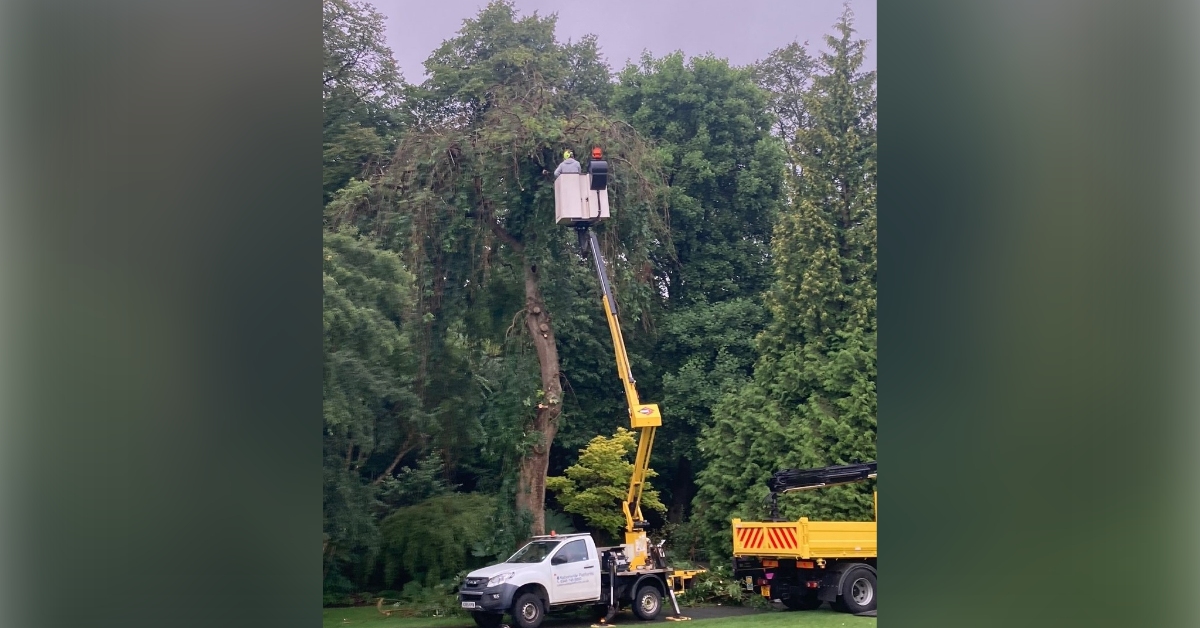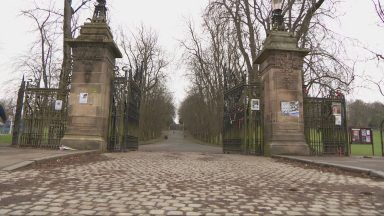The oldest tree in Glasgow’s Botanic Gardens has been cut down over safety fears.
A weeping ash, planted in 1818 and moved to its current site in 1841, was felled by council workers.
The decision was taken due to the tree, originally gifted to the Botanic Gardens, becoming unstable and presenting a risk of falling timber.
It had become infected with ash dieback – a serious disease of ash trees caused by a fungus.
The fungus affects the water transport system of trees just beneath the bark.
Seven other ash trees were also infected and had to be cut down.
A section of trunk from the Botanics felled oldest tree will remain at the site, with new signage including information about it.
A council spokeswoman said: “Sadly, Ash Dieback disease has infected eight trees in the Botanic Gardens which have to be cut down as they are unstable and pose a risk to park users – particularly as autumn approaches with stronger winds.
“Tragically, this included the oldest tree in the Botanics – a Weeping Ash which was gifted to the original Botanic Gardens (at Sandyford near Sauchiehall Street) by nurseryman, Robert Austin.
“It was planted there in 1818 and moved to its current site in 1841.
“The weeping form of the tree is particularly prone to the disease. Infectious spores are spread by the wind and pose a danger mainly to older trees above ten metres tall. Standing dead wood becomes brittle and there is a risk of falling timber.
“Glasgow has around 250,000 Ash trees – around half on council land and the other half on private property.
“The disease, which is prevalent across the UK, poses a real threat to this beautiful species and the council has drawn up an Ash Dieback Action plan which includes inspecting trees and monitoring the spread of the disease.
“The infected Weeping Ash which had to be felled was part of the Botanic Gardens Tree Trail and a section of its trunk will remain on the site with new signage featuring information about the tree, the disease and the natural processes of decay.”
Follow STV News on WhatsApp
Scan the QR code on your mobile device for all the latest news from around the country


 Twitter
Twitter























